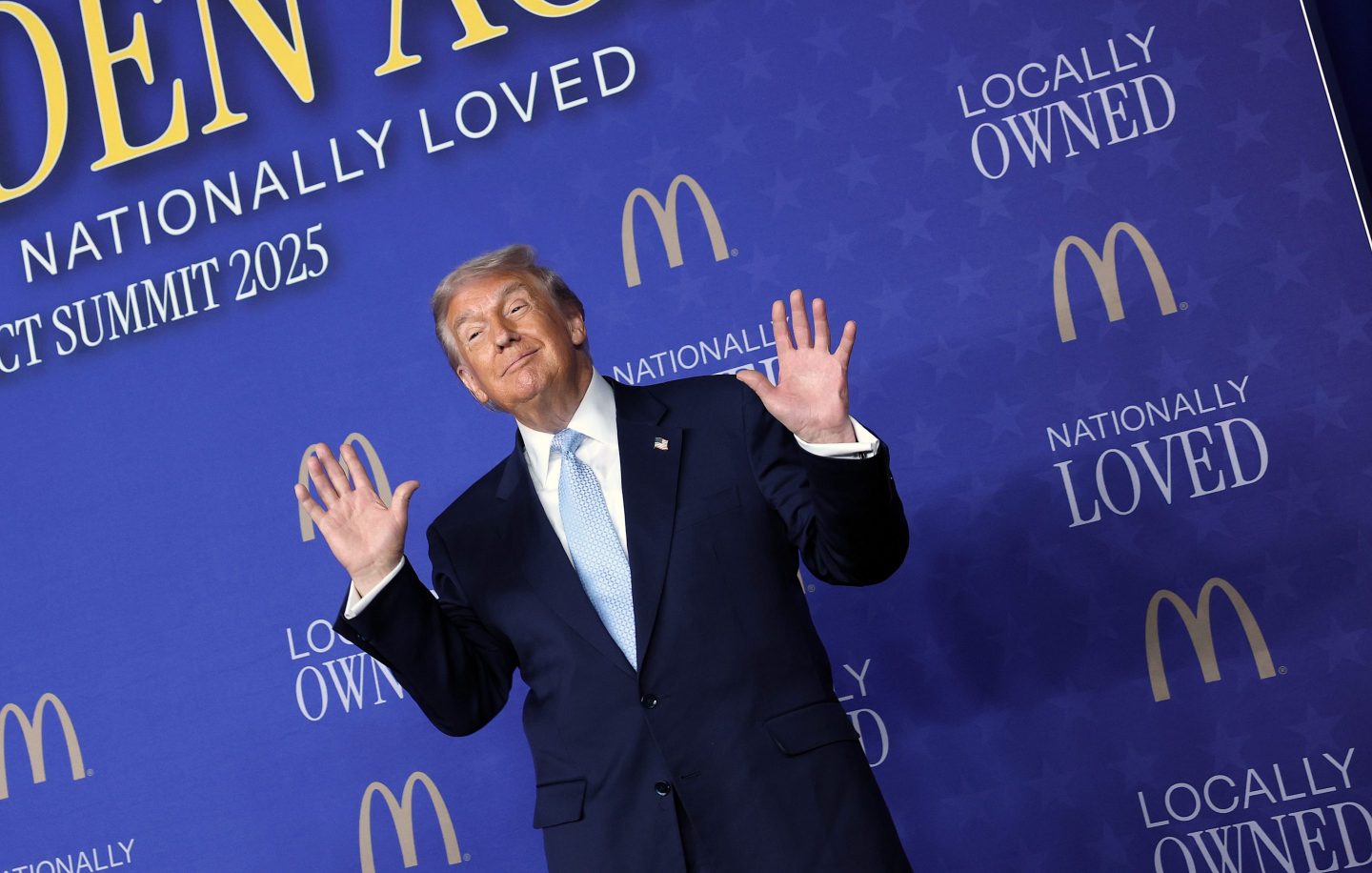President Donald Trump has spoken out on the U.S. affordability crisis, promising to both provide much-demanded relief to struggling Americans while simultaneously declaring the country has never been better.
Trump spoke on Monday at the McDonald’s Impact Summit about the need for affordability and value, touting the fast-food chain for helping lower prices through its Extra Value Meals. He laid blame on stubborn inflation and high prices on President Joe Biden.
“The Biden administration started the affordability crisis, and my administration is ending it,” Trump said in his address.
“Affordable should be our word, not theirs,” he added. “Democrats get up and they talk about ‘affordability,’ ‘affordable.’ They don’t say that they had the worst inflation in history, the highest energy prices in history, everything was the worst.”
At the same time, the president downplayed economic concerns, praising the strength of the country.
“This is also the golden age of America, because we are doing better than we’ve ever done as a country,” Trump said. “Prices are coming down and all of that stuff.”
K-shaped economy blues
Trump’s pitch for affordability comes as polls indicate that his core supporters, working-class Americans, are questioning whether the administration has done enough to address the economy. Recent polling from CNN and NBC News, respectively, has indicated not only a bottoming out in the President’s approval rating, but also wavering confidence among Republicans regarding how he is handling the economy. The recent elections of New York City mayor-elect Zohran Mamdani and Seattle mayor-elect Katie Wilson—both young democratic socialists running on platforms of affordability—have some speculating whether voters are shifting blue again.
All the while, there is growing evidence—and concern—about the K-shaped economy, or diverging fortunes for high-income and low-income Americans that resemble the two parting lines of the letter K. Inflation ticked up in September, according to the Department of Labor, likely a result of ongoing tariffs, while homeownership may not be affordable for another 10 to 15 years due to the reverberations from pandemic-era monetary policy that hiked interest rates, Amherst Group CEO Sean Dobson recently said.
There are also growing disparities in wage growth between high- and low-income Americans, as well as an increase in both subprime and superprime loans, according to recent TransUnion data. Moody’s Analytics found last month that the top 10% of earners accounted for nearly half of second-quarter spending. At the same time, retail CEOs have noted in recent earnings reports that lower-income earners are pulling back.
Even McDonald’s CEO Chris Kempczinski said in a CNBC Squawk Box interview in September that he has noticed a change in consumer behaviors, warning of a “two-tiered economy” of wealthier customers making up a growing chunk of the fast-food chain’s business.
Addressing the affordability crisis
Trump said in his hourlong address on Monday that he has made efforts to ease high prices for Americans, including slashing tariffs on groceries such as tomatoes and coffee, as well as beef, which has ballooned in price as cattle herd sizes dwindle. Last month, Trump floated buying beef from Argentina, which angered American cattle farmers, convinced the move would disrupt the free market they enjoy.
The president has also promised Americans $2,000 tariff dividend checks, which he said could arrive mid-next year.
“We worked on it this weekend,” Trump said on Monday. “And you’re going to see some of the items that were a little bit higher—they were lower than the last administration but a little bit higher—we’re going to have some little price reductions and, in some cases, some pretty good ones.”
Economists have said American discontent will continue to increase so long as they perceive affordability as an issue, even if economic indicators improve. This is because consumer sentiment and the state of the economy are intertwined, according to Peter Atwater, an adjunct professor of economics at William & Mary and the president of Financial Insights, who popularized the term K-shaped economy. He said poor consumer sentiment will not only keep lower-income Americans from spending, but could also lead some to harbor anger that could drive workplace resentment, which could in turn drive down productivity.
“At the bottom, this mindset develops where they recognize that they may never win, but that doesn’t mean, ‘I can’t help you lose,’” Atwater told Fortune.
Atwater said souring consumer sentiment could also lead to political unrest, such as during the Arab Spring, when an increase in global food prices was linked to protests, according to a 2011 study from the New England Complex Systems Institute.
“This is a crisis of confidence,” he concluded. “Sadly, those who are in the best position to address it seem at best indifferent, and that does not go unnoticed by those at the bottom.”













